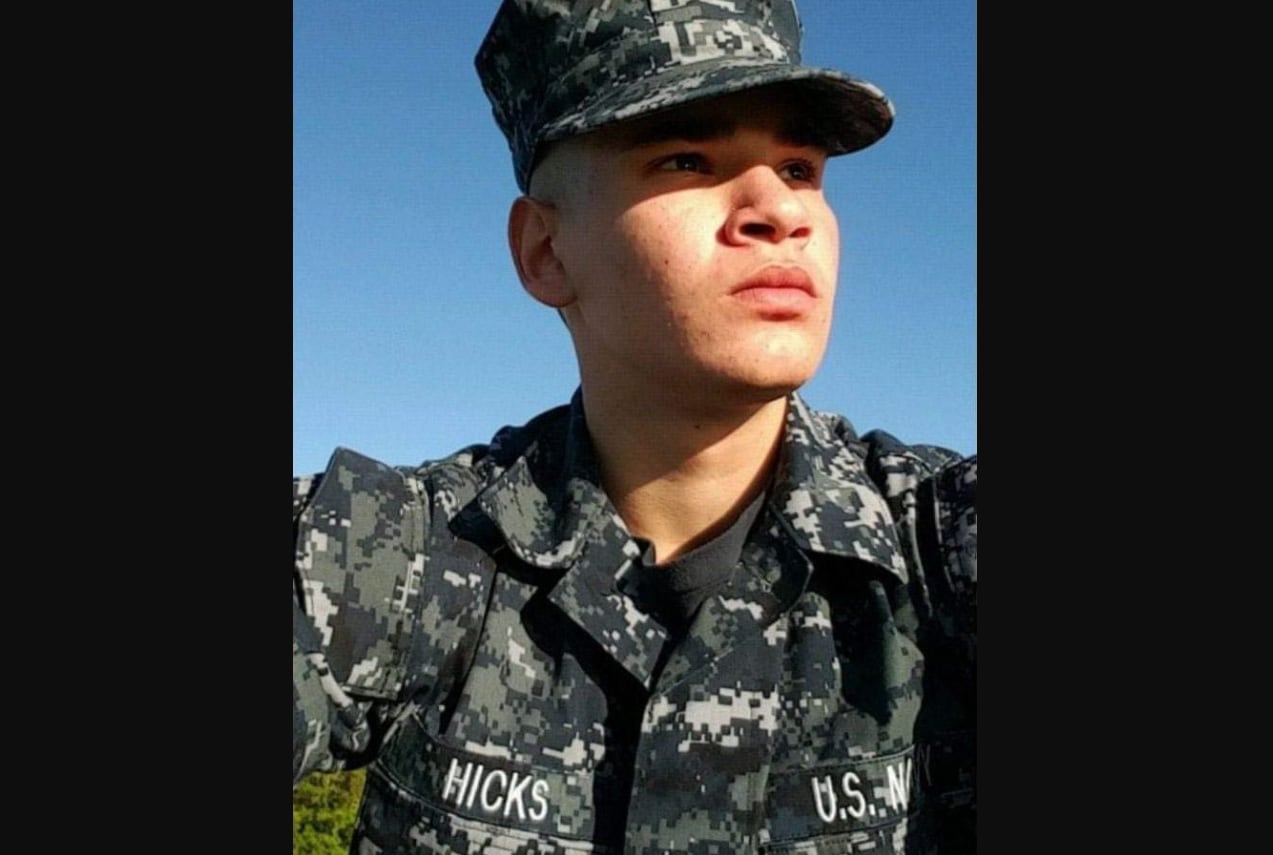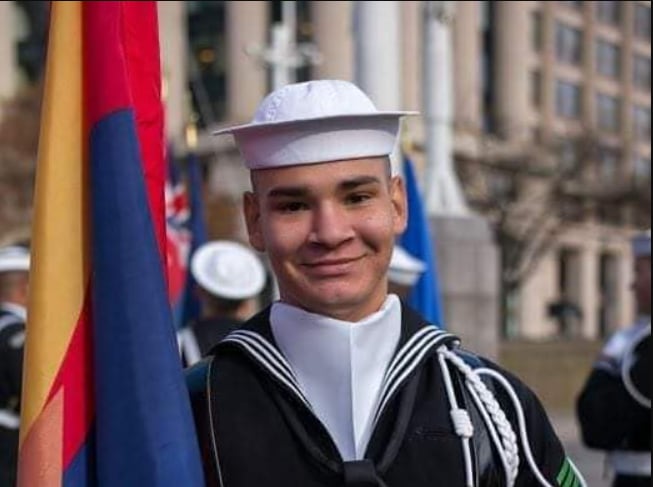The parents of a junior sailor who killed himself in an Army jail after allegedly substandard mental health care by Navy providers are appealing the sea service’s denial of their multi-million-dollar medical negligence claim.
Attorneys for the parents of Aviation Boatswain’s Mate (Handling) Airman Macoy Hicks, 20, contend the Navy failed to follow the letter and spirit of the law in its “arbitrary and capricious” denial. The original claim, filed in January, alleged that Hicks received subpar mental healthcare from the Navy, and that Army jailers failed to properly care for him when they issued him a belt he used to take his life while confined for 25 days at Joint Base Lewis-McChord, Washington, in February 2019.
For decades, a legal stricture known as the Feres Doctrine prohibited servicemembers from suing the federal government under the Tort Claims Act.
But a change in law, included in the 2020 defense bill, allowed such claims to be filed to the services, though critics have noted a lack of transparency in the adjudication process and that claimants aren’t afforded the same set of rights that they would get in a civilian courtroom.
The Navy’s initial determination letter for the Hicks claim, dated Sept. 20, argued that the law does not apply to the claim because “the allegedly negligent care did not occur in a covered military treatment facility.”
RELATED

“Rather, it occurred onboard a Department of the Navy ship (USS Nimitz) and a Department of the Army brig,” the letter states. “Therefore, your client’s claim is denied.”
Writing in an appeal filed Wednesday to the Defense Health Agency Appeals Board, attorneys for Hicks’s parents, Michael Berens and Darrin Bailey, argue that the Navy’s denial “misstates the facts” of what happened to Hicks, while ignoring the fact that military medical treatment often takes place outside a formal military treatment facility.
While the attorneys filed claims against both the Army and Navy, the Navy is handling the Hicks family claim since Hicks was a sailor.
The appeal argues that denying the claim because of where the allegedly negligent medical care occurred — aboard the aircraft carrier Nimitz and the Lewis-McChord jail — is “indefensible,” given that Hicks and other sailors like him have little to no say in where or how they are treated under such circumstances.
“Declaring licensed military medical providers assigned to such units as free of any responsibility for their negligence resulting in injury to the service members they support simply because the care they provided occurred near, but not necessarily physically inside, a ‘military treatment facility’ is not consistent with the spirit and intent of the law under which this claim is brought,” the appeal states. “The Department of the Navy should not be allowed to assign specific providers to Sailors based on their duty location, subsequently eliminate their access to medical care, and use this authority as a basis to deny a viable claim for medical negligence.”
The Hicks family appeal contends that the “spirit and intent” of that legislation was to provide a way for families to recover claims from negligent military medical providers.
RELATED

“Failure to accept any responsibility for this tragic dereliction of duty, where a USN Sailor received care onboard a dry-docked ship, at two Military Treatment Facilities (Naval Hospital Bremerton and Madigan Army Medical Center), and while incarcerated — shocks the conscience and amounts to an arbitrary and capricious interpretation of a law that is still in the rule making process,” the appeal states. “The services should not be able to insulate themselves from medical negligence liability by pushing care to the units or otherwise positioning providers on the peripheries of ‘medical treatment facilities.’”
The appeal also calls on the services and the DHA to craft rules that don’t differentiate between medical negligence that occurs in a military treatment facility and in other locales, such as on a ship.
“This tragedy was avoidable, and it never should have occurred,” the appeal states. “This claim is aimed squarely at holding the Departments of the Navy and Army, and specifically the medical providers and leaders responsible for Macoy’s well-being, accountable.”
RELATED

Bailey, one of the attorneys who filed the claim on behalf of Hicks’s parents, told Navy Times Tuesday that they have not been told when DHA will rule on their appeal.
Navy officials did not respond to requests for comment on the appeal by Navy Times’ deadline Tuesday, nor did they provide an updated tally on the number of medical negligence claims the service has received since early 2020, when injured troops and surviving families became eligible to file such claims.
But as of May, hundreds of claims seeking roughly $3.2 billion had been filed to the services.
The Hicks family claim seeks between $4.9 and $6.4 million in damages.
Geoff is the managing editor of Military Times, but he still loves writing stories. He covered Iraq and Afghanistan extensively and was a reporter at the Chicago Tribune. He welcomes any and all kinds of tips at geoffz@militarytimes.com.




